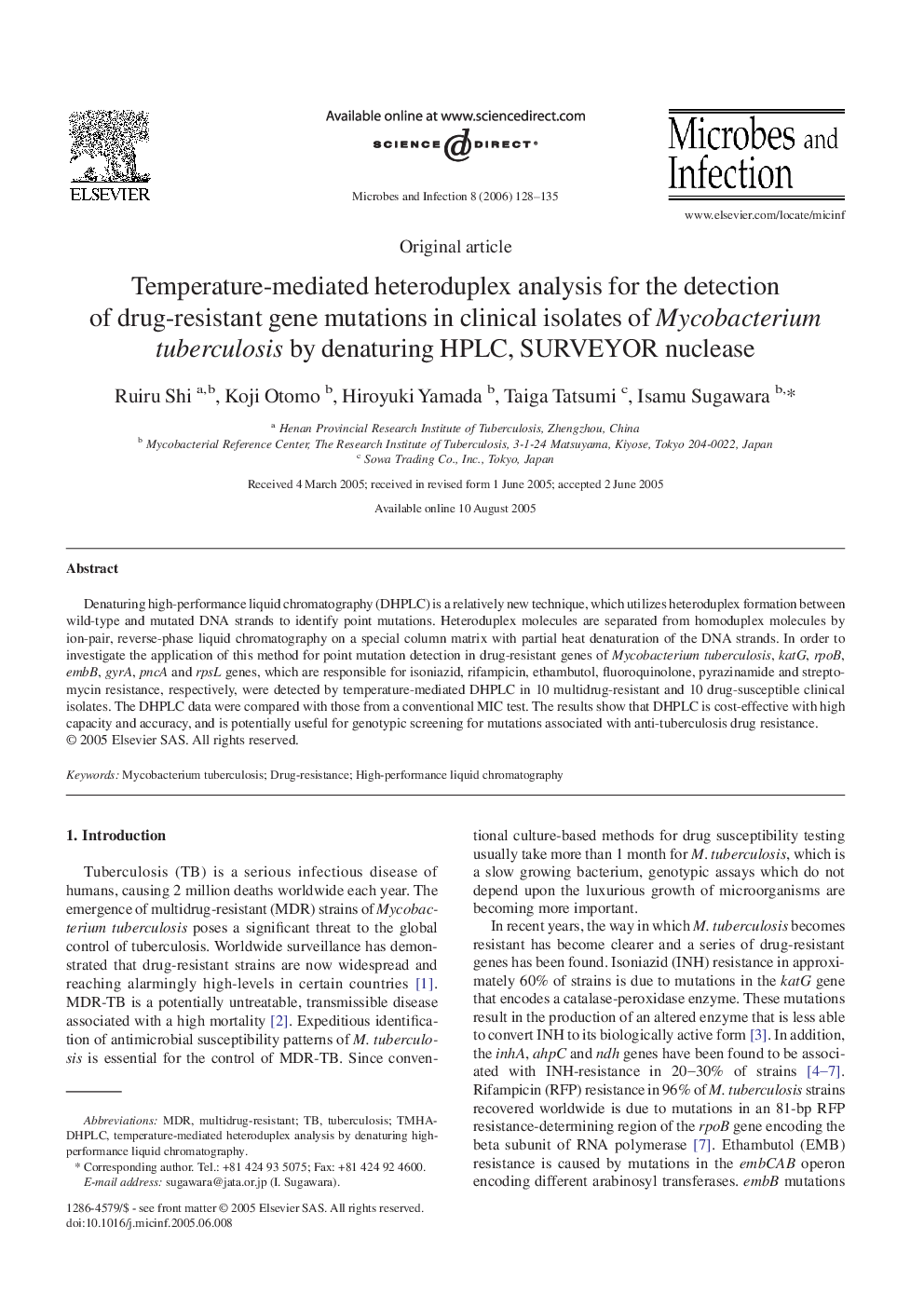| Article ID | Journal | Published Year | Pages | File Type |
|---|---|---|---|---|
| 3415717 | Microbes and Infection | 2006 | 8 Pages |
Denaturing high-performance liquid chromatography (DHPLC) is a relatively new technique, which utilizes heteroduplex formation between wild-type and mutated DNA strands to identify point mutations. Heteroduplex molecules are separated from homoduplex molecules by ion-pair, reverse-phase liquid chromatography on a special column matrix with partial heat denaturation of the DNA strands. In order to investigate the application of this method for point mutation detection in drug-resistant genes of Mycobacterium tuberculosis, katG, rpoB, embB, gyrA, pncA and rpsL genes, which are responsible for isoniazid, rifampicin, ethambutol, fluoroquinolone, pyrazinamide and streptomycin resistance, respectively, were detected by temperature-mediated DHPLC in 10 multidrug-resistant and 10 drug-susceptible clinical isolates. The DHPLC data were compared with those from a conventional MIC test. The results show that DHPLC is cost-effective with high capacity and accuracy, and is potentially useful for genotypic screening for mutations associated with anti-tuberculosis drug resistance.
